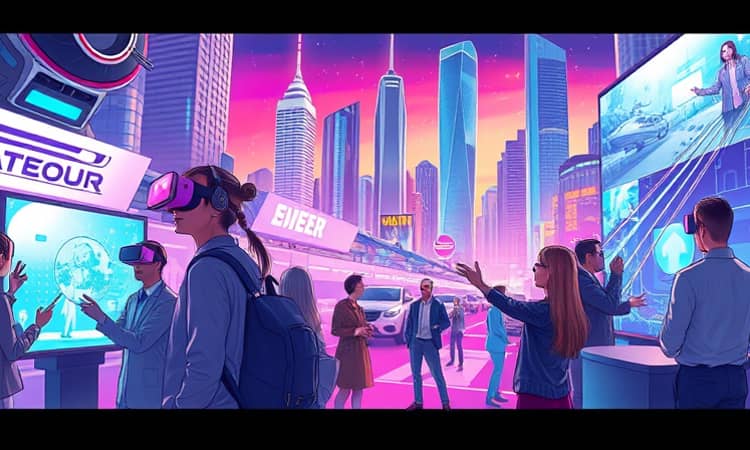As technology progresses at an unprecedented pace, the potential for Virtual Reality (VR) to transform various aspects of our lives continues to grow. From entertainment to education, the immersive experiences offered by VR are becoming more sophisticated, leading to exciting possibilities for the future.
In this article, we will explore five predictions about how VR will shape our world in the coming years, and how these advancements may impact our everyday experiences.
1. Virtual Reality Will Become Mainstream
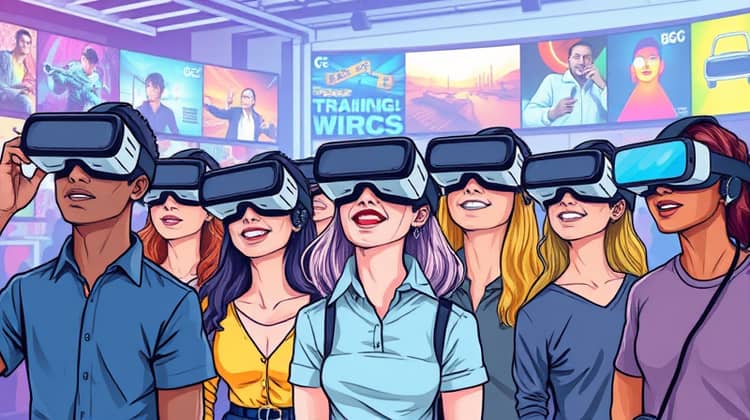
Over the past decade, VR has transitioned from a niche technology to one that is rapidly gaining traction among consumers and industries alike. This shift is fueled by advancements in hardware and software, making VR more accessible and affordable than ever.
With the increasing availability of high-quality VR headsets and a growing library of content—from games to training simulations—more people are expected to adopt this technology in their daily lives.
- Affordable VR devices will enhance accessibility for consumers.
- High-quality content across various platforms will attract more users.
- Increased awareness of VR through social media and marketing will drive mainstream adoption.
2. VR and AR Will Merge
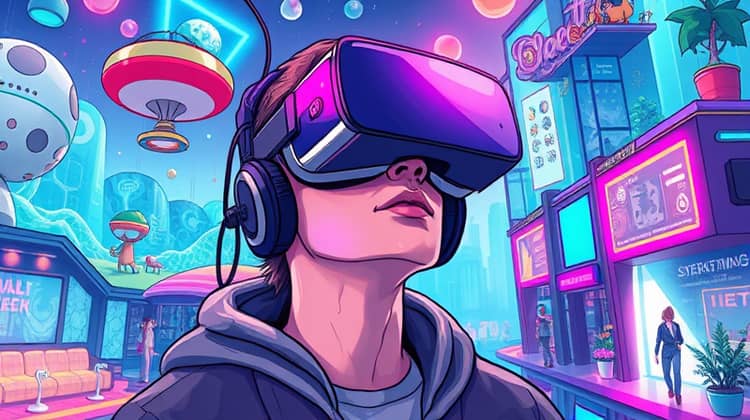
As both Virtual Reality (VR) and Augmented Reality (AR) technologies evolve, a convergence of the two is increasingly likely. This hybrid experience would combine the immersive qualities of VR with the interactive elements of AR, creating more engaging environments for users.
By merging VR and AR, we can expect to see applications that enhance real-world environments or virtual spaces in ways that were previously unimaginable. For instance, users could enjoy a game that overlays digital elements onto their physical surroundings while maintaining an immersive VR experience.
This merger could lead to groundbreaking developments in various fields, including entertainment, healthcare, and remote work.
3. Social VR Will Transform Human Interaction
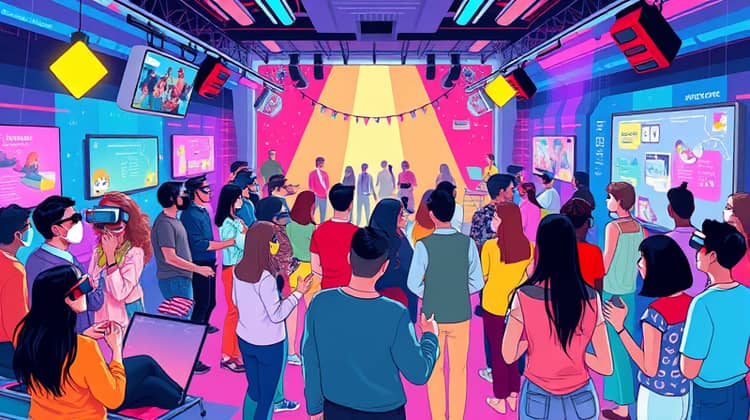
Social interactions are poised for a significant transformation as VR becomes more integrated into our everyday lives. Applications that leverage the social aspects of VR allow users to connect in virtual spaces, creating opportunities for collaboration and camaraderie regardless of physical location.
By using avatars and immersive environments, individuals can engage in more meaningful relationships, attend events, and share experiences in ways that are simply not possible through traditional social media.
- Virtual communities will emerge, allowing users to build connections in shared spaces.
- Events like concerts and conferences can host larger audiences virtually.
- Businesses will leverage social VR for team-building and collaborative projects.
4. The Education Sector Will Embrace VR
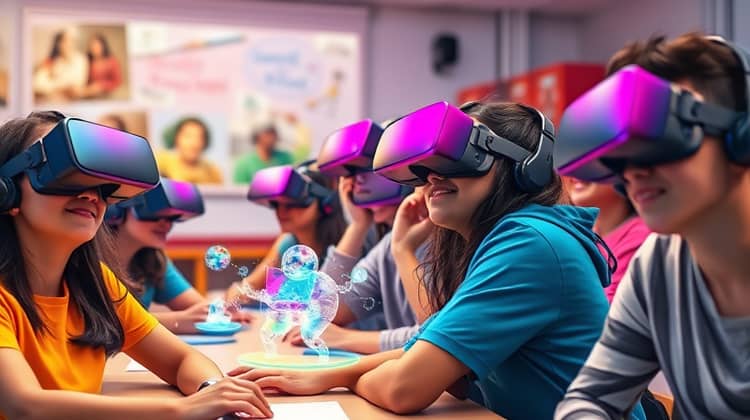
The education sector is on the brink of a revolution as the benefits of incorporating VR into learning environments become undeniable. VR can create immersive educational experiences that facilitate deeper understanding and retention of information, creating a more engaging learning experience for students.
From virtual field trips to simulated historical events, the possibilities are endless. This technology can cater to various learning styles, making education more inclusive and personalized.
- Schools may begin to adopt VR technology as part of their curriculum.
- Universities could offer coursework centered around VR and AR development.
- Training simulations in vocational and technical education could become commonplace.
Overall, as the educational landscape becomes increasingly tech-driven, VR will play a significant role in shaping future learning methodologies.
5. VR Will Revolutionize the Workplace
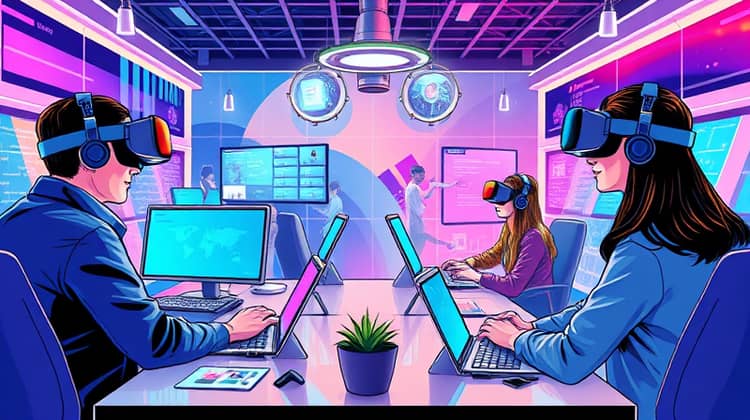
As remote work becomes more commonplace, VR offers a solution to foster collaboration and communication in virtual settings. By recreating the office experience in VR, teams can work together more effectively, regardless of location, leading to greater productivity and creativity.
This technology allows for realistic simulations and training sessions, which can be particularly beneficial in industries such as healthcare, construction, and front-line services.
- Virtual meetings in immersive environments will reduce travel costs.
- Training programs can be developed to replicate real-life scenarios.
- Employee onboarding processes can be enhanced with interactive VR experiences.
As organizations continue to adapt to new work models, the potential for VR to transform how we interact and collaborate in the workplace cannot be underestimated.
Conclusion
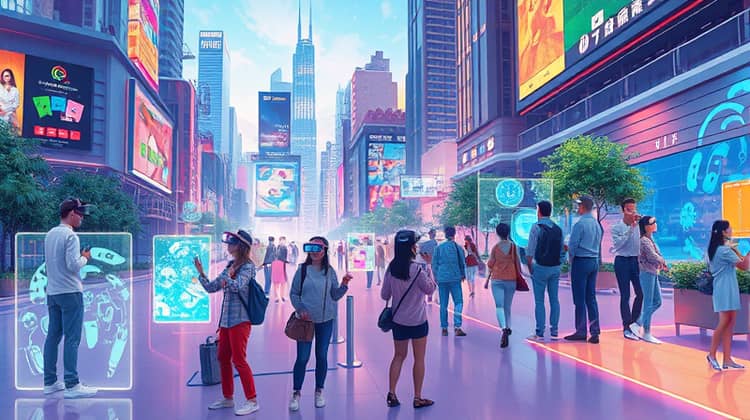
The future of Virtual Reality is brimming with possibilities and promises a transformative impact across multiple facets of our lives. As VR technology continues to evolve, its integration into our daily experiences, from social interactions to education and work, will redefine our realities.
These predictions highlight the importance of staying attuned to the advancements and trends in VR, as they will undoubtedly modify how we connect, learn, and collaborate in a rapidly changing world.

